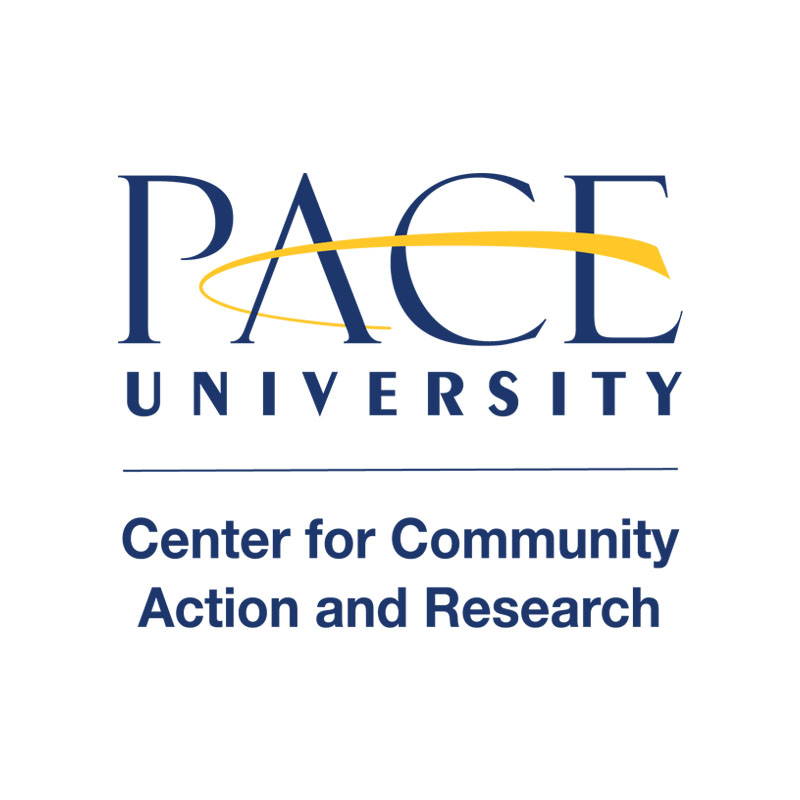The Month for Human Trafficking Awareness
Here at the Center for Community Action and Research we dedicated the month of March to the take-action of Human Trafficking. As Washington fights against one another over passing a bill on the topic, here at Pace we were trying to raise awareness of topic that so many ignore. The main event of the month was a week spent with traumatologist and human trafficking expert Halleh Seddighzadeh, PHd. In the come up to the event with Dr. Halleh, I, Andre Arias, researched the topic, as I do with every take-action, and found some startling statistics. For every take-action I always make a video about Pace students reactions to the topic. This month I did the video a little differently, I had Pace students read the statistics that I found during my research in a public service announcement style video to raise awareness on the topic. While asking students to this task I was really able to find their reactions to what they felt about this topic. Although, I wasn’t able to capture their reactions on tape for the world to see I really got a feel for what the students felt on the topic. In making the video it was simple I would give them the statistic and ask them to read it. Pace students aren’t professional actors. To say that when they read the facts that they were overwhelmed would be an under-statement. There was the added factor of having to be on camera that would give the students nerves but when the students realized how serious it was what they were reading their emotions dramatically changed. Not in they way I think one would expect though but that’s when humor set in their minds. The uncontrollable giggles came from almost every student who was given the task of reading one line for a student made video. At the time I didn’t realize why they were laughing at such a horrible topic and kept telling them, “really think about what it is your reading, this is serious” but now looking back I realized they did realize what they were reading. Looking back these were students that were having just a normal day on a college campus and then were told that right now at that very moment there is a child in an illegal sex ring that is most likely going to be raped and infected with HIV. Of course they would laugh, not because it’s funny but because how else would one respond to such an appalling statement. The laughs weren’t because the subject matter was funny to them but it was because it was shield the students would put to distance themselves from believing that something so terrible could even happen once but rather happen every single day. That’s where talking with Dr. Halleh comes in.
Halleh Seddighzadeh, PHd is a traumatologist and expert in human trafficking from Nevada. She dedicated an entire week to speaking to Pace students about the topic of human trafficking including speaking to students on NYC campus about dispelling myths on the topic and then came to the Pleasantville campus to talk in a Common Hour Conversation and give a lecture at the Lienhard Lecture Hall about the medical impacts of human trafficking. Dr. Halleh’s message was clear from what I learned listening to her from both outings she made her on the Pleasantville campus. The first message was how she began almost all of her speeches, ” Human trafficking is a form of torture.” Human trafficking isn’t a choice made by it’s victims. Victim’s of human trafficking are manipulated by their trafficker and are forced into a form of slavery that is almost unimaginable to the everyday citizen. One of the things I found the most interesting from listening to Dr. Halleh was that those statistics that I found before in my research, she didn’t believe any of them. Saying, “300,000 Americans are currently being human trafficked, ha, quadruple that.” I was shocked it had never occurred to me that the statistics I had been reading from the FBI and the ICE would be false. Dr. Halleh was right though, how could they possible know how many people were currently being human trafficked, there’s no accurate census being sent around between pimps asking them how many slaves they currently had. I was experiencing the same feeling that the students did when I showed them the statistics, I was overwhelmed. Being Overwhelmed by what I was hearing though is exactly what Dr. Halleh says everyone feels when it comes to crimes like this. We can’t even comprehend that somethings so heinous and terrible happens in our world so we start to look for alternate reasons as to why it might happen. This causes victim blaming. Dr. Halleh’s second message and her main mission to come to Pace is to rid of victim blaming. In order to end human trafficking and honor the victims of this incredibly horrible crime we must eradicate victim blaming. Dr. Halleh ended all of her speeches with telling the audience that the one wish of every victim she has come in contact with is that they truly wish victim blaming would end and that they wish the blame would go towards the people who are actually responsible for the crime and not the victims. Dr. Halleh’s visit to Pace was incredibly successful and will remain a part of the students who attended the events lives’ for a very long time.





